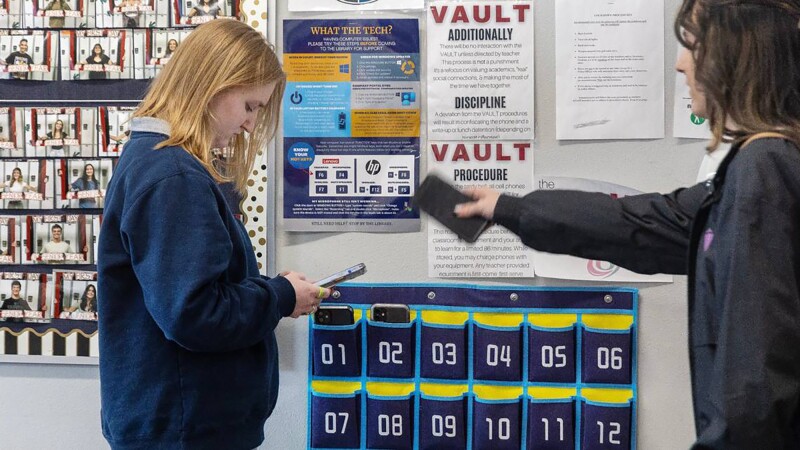
Schools in Florida may have found a surprising ally in their quest for improved student engagement: a ban on cellphones. A recent study by researchers from the University of Rochester and the RAND Corporation analyzed the impact of this policy, which was implemented two years ago. The findings indicate significant changes in student behavior and academic performance following the introduction of the ban.
The study, released in October 2023 by the National Bureau of Economic Research, highlighted that the initial effects of the cellphone ban led to an increase in suspensions. According to the research, the suspension rate more than doubled in the month following the policy’s enforcement compared to the prior month. Furthermore, discipline incidents were 25 percent higher than the same month the previous school year. Notably, Black students and male students experienced a disproportionate number of disciplinary actions, raising concerns about potential exacerbation of the school-to-prison pipeline.
Despite these early spikes in disciplinary measures, the study indicated that the situation improved over time. In the second year of the ban, the disciplinary rates largely returned to normal. This adjustment is attributed to students adapting to the new rules and recognizing the seriousness with which school administrators enforced the ban. The research underscored a fundamental principle: students often respond to the consequences of their actions.
The researchers observed that the initial resistance to the cellphone ban reflected a common dynamic in educational settings. If authority figures prioritize empathy for rule-breaking over consistent enforcement, students may increasingly test boundaries. This pattern has been noted in other regions, such as Nevada, where lax enforcement has led to a rise in unruly behavior among students.
The most compelling aspect of this study is the positive impact the cellphone ban had on student learning. In their findings, the researchers noted significant improvements in student test scores during the second year of the restriction. This was particularly evident among middle and high school students, likely due to their higher prevalence of cellphone ownership. Additionally, the policy led to a notable decrease in unexcused absences, suggesting that requiring students to put down their phones fostered greater engagement in the classroom.
As discussions about school funding and resources continue, this research serves as a reminder of the importance of effective policy in enhancing student achievement. The Clark County School District in Nevada has implemented cellphone restrictions, but anecdotal evidence suggests inconsistent enforcement. Advocates for educational reform argue that stricter adherence to these policies is essential for benefiting students. Other districts in Nevada are encouraged to adopt similar measures and ensure rigorous enforcement to maximize the potential benefits of cellphone bans.
The findings from the Florida study may prompt educators and policymakers to reconsider the role of cellphones in the classroom. By prioritizing focused learning environments, schools can create conditions more conducive to academic success.






